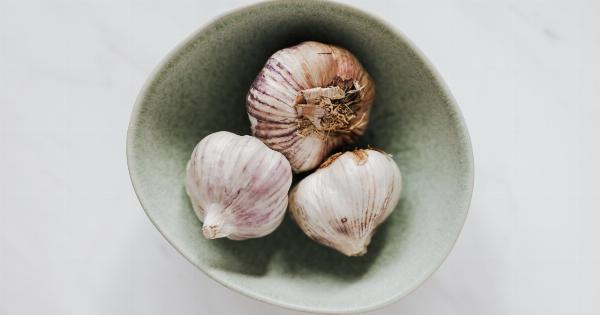Menopause marks the end of a woman’s reproductive years, usually occurring between the ages of 45 and 55. It is characterized by hormonal changes, which can cause various symptoms such as hot flashes, vaginal dryness, and mood swings.
While menopause is a natural process, there are ways to manage its symptoms to improve the quality of life. One of the best ways is through a healthy diet that includes plenty of fruits and vegetables. In this article, we will explore the top 10 fruits that are beneficial for women in menopause.
1. Berries
Berries are among the healthiest fruits you can eat, and they are packed with nutrients that are particularly beneficial for women in menopause.
For example, berries are rich in antioxidants, which can reduce the risk of chronic diseases such as heart disease and cancer. They are also a good source of dietary fiber, which can help reduce cholesterol levels and support digestive health.
2. Apples
Apples are another excellent fruit for menopausal women. They are low in calories but high in fiber, helping to promote satiety and prevent overeating.
At the same time, apples are a rich source of vitamins and minerals, including vitamin C, vitamin K, and potassium. The antioxidants in apples, such as quercetin and catechin, can help reduce inflammation and support heart health.
3. Citrus Fruits
Citrus fruits such as oranges, grapefruits, and lemons are rich in vitamin C, a powerful antioxidant that has been linked to numerous health benefits. In menopausal women, vitamin C has been shown to help reduce the risk of hot flashes and mood swings.
Citrus fruits are also a good source of dietary fiber, which can support digestive health and reduce the risk of chronic diseases.
4. Grapes
Grapes are packed with antioxidants and other beneficial compounds such as resveratrol, which has been linked to a reduced risk of chronic diseases such as heart disease and cancer.
In menopausal women, resveratrol has been shown to have potential benefits for bone health, helping to reduce the risk of osteoporosis.
5. Kiwifruit
Kiwifruit is a nutrient-dense fruit that is particularly rich in vitamin C, vitamin K, and dietary fiber. It has been shown to have potential benefits for digestive health, immunity, and heart health.
In menopausal women, kiwifruit may also help reduce the risk of hot flashes and other symptoms, thanks to its high content of phytoestrogens.
6. Pomegranates
Pomegranates are loaded with antioxidants, particularly polyphenols, which have been shown to have potential benefits for heart health. They may also help reduce inflammation and support the immune system.
In menopausal women, pomegranates may also have potential benefits for reducing the risk of hot flashes and supporting healthy estrogen levels.
7. Bananas
Bananas are a good source of potassium, which can help regulate blood pressure and support heart health. They are also a good source of dietary fiber, which can support digestive health and prevent constipation.
Bananas also contain vitamin B6, which has been shown to help reduce the risk of depression and improve mood in menopausal women.
8. Mangoes
Mangoes are a rich source of vitamins and minerals, including vitamin A, vitamin C, and potassium. They are also loaded with antioxidants such as polyphenols and carotenoids, which have been linked to various health benefits.
In menopausal women, mangoes may help reduce the risk of hot flashes and improve heart health thanks to their high content of polyunsaturated fatty acids.
9. Cherries
Cherries are another fantastic fruit for menopausal women. They are loaded with antioxidants, particularly anthocyanins, which have been linked to various health benefits such as reducing inflammation and improving heart health.
In menopausal women, cherries may also help reduce the risk of hot flashes and other symptoms thanks to their content of phytoestrogens.
10. Pineapple
Pineapple is a tropical fruit that is rich in vitamin C, bromelain, and other beneficial compounds. Bromelain is an enzyme that can help reduce inflammation and support digestive health.
Pineapple may also have potential benefits for reducing the risk of chronic diseases such as heart disease and cancer. In menopausal women, pineapple may help reduce the risk of hot flashes and improve mood thanks to its content of phytoestrogens.
Conclusion
Menopause can be a challenging time for many women, but a healthy diet that includes plenty of fruits and vegetables can help manage symptoms and improve overall health.
The fruits listed above are particularly beneficial for menopausal women, thanks to their high content of antioxidants, phytoestrogens, and other beneficial compounds. By incorporating these fruits into your diet, you can support your health and feel your best during this transition.




























